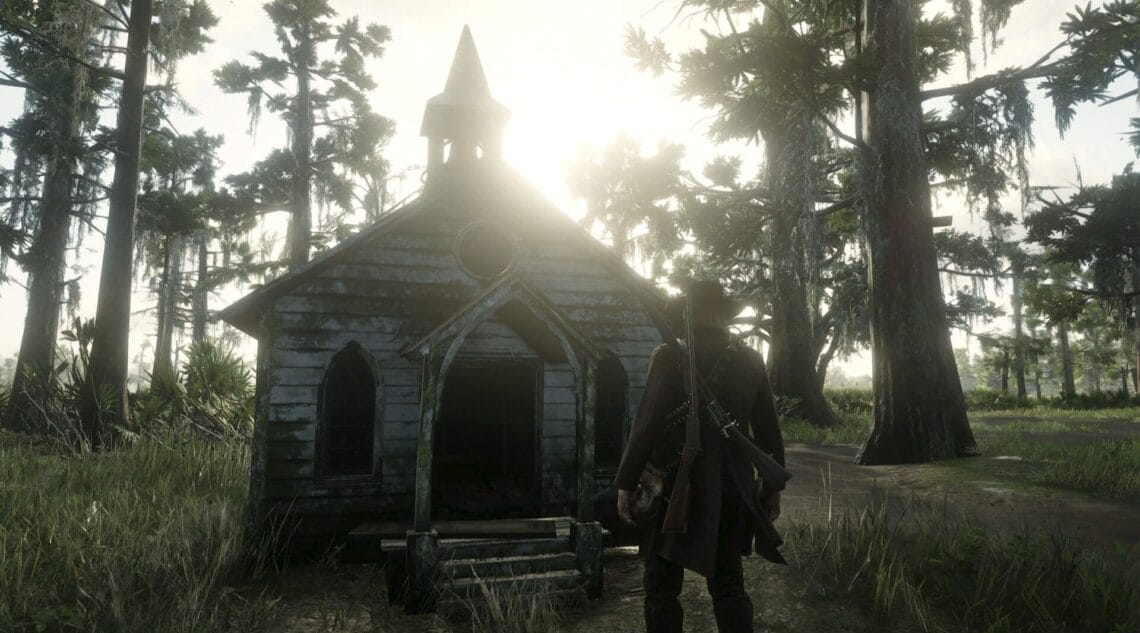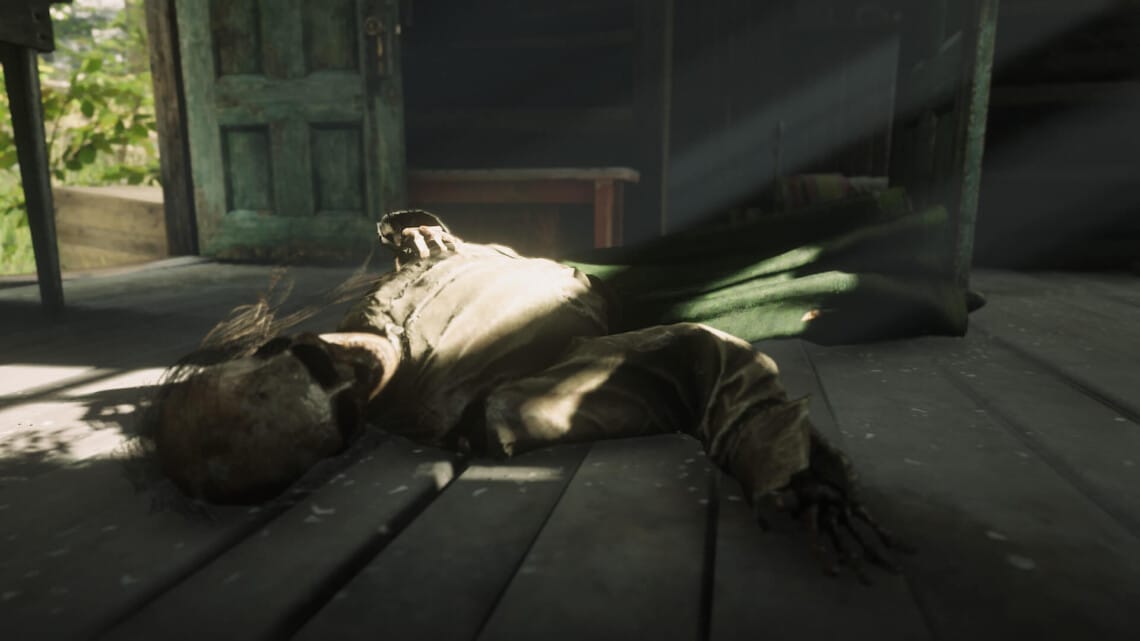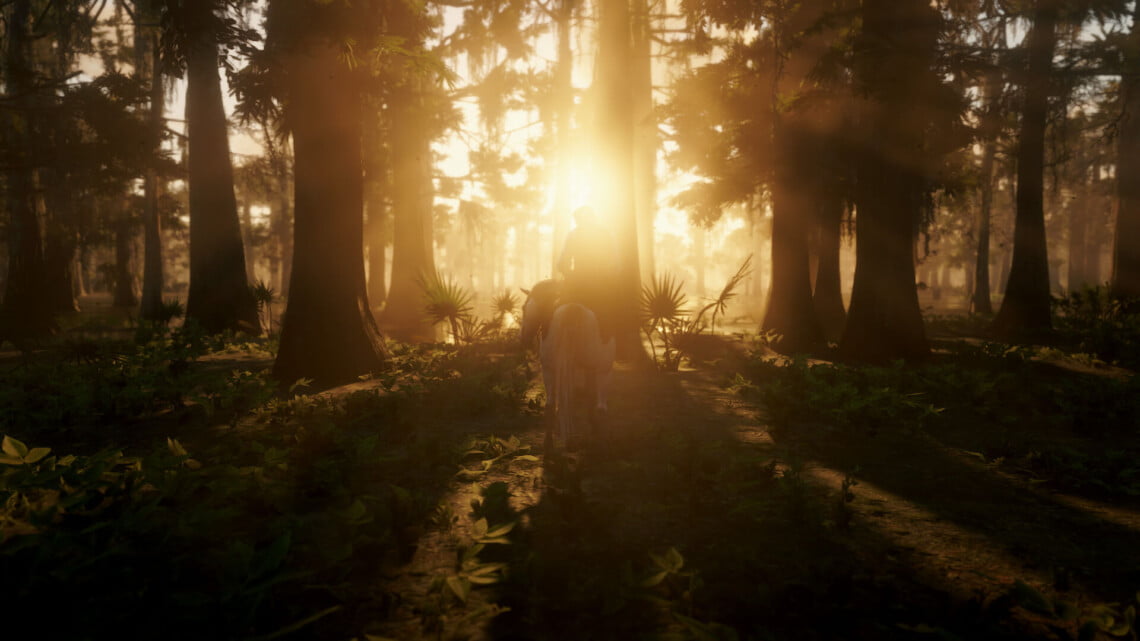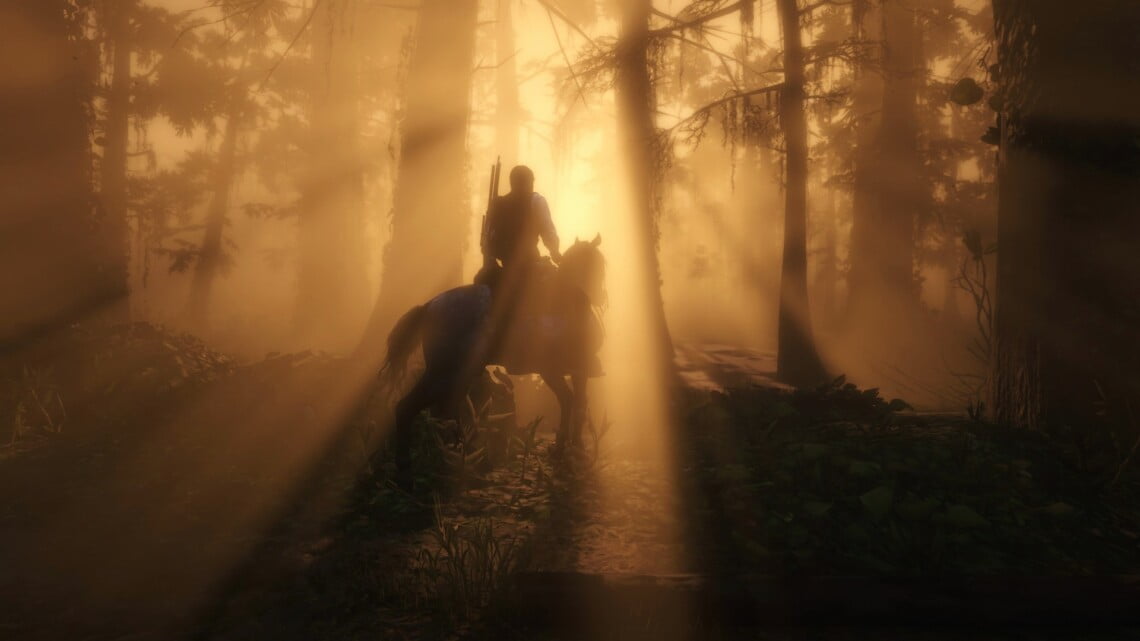The relationship between RDR2 and the Bible is an odd one. The game seems thoroughly secular on the surface, but its ideas about sin and redemption are not unchristian — perhaps because it relies so much on Paradise Lost to shape it. But the use of that text doesn't entirely account for the use of Biblical material in the game, which indicates a broad familiarity with that body of work.
The flawed beliefs about gender that Dan Houser, Michael Unsworth, and Rupert Humphries demonstrate through RDR2 harm their efforts to write characters of both the genders the game depicts. They dismiss the women and damn the men rather than allow them to act in ways the Western codes as feminine. If they were able to understand that women are not lesser beings, perhaps their minds would be broad enough to imagine other endings for their male characters. But they aren't: women are not written well in RDR2.
I've discussed Paradise Lost in some depth now, but there are still quite a few allusions that didn't fit elsewhere. This also seems like the best place to discuss the other allusions to the Romantics in the game. Here's a roundup of the essays, followed by a list of the other references the game makes.
One of the writers’ apparent motivations in writing Red Dead Redemption 2 was to make Red Dead Redemption even more sad. The way the first game is retconned in the second one can be annoying because of the mismatch in details, but at times, it’s very effective ...
Paradise Lost, as one of the most essential influences of Red Dead Redemption 2, naturally contributes more than characters to the game’s narrative. Like the poem, one of RDR2’s central themes involves the gaining of knowledge. However, the game and the poem come to divergent conclusions about that concept. What Milton condemns, RDR2 declares imperative.




